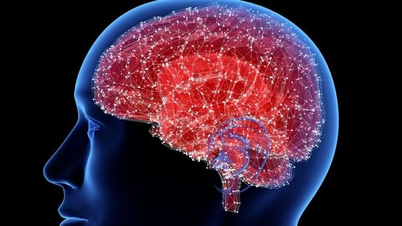Alzheimer's disease causes cognitive decline and is commonly seen in older adults, characterized by difficulty remembering information and memory loss.
Alzheimer's disease is characterized by the deposition of beta amyloid (a type of protein) and neuronal plexuses in the cerebral cortex and subcortical gray matter. According to the Alzheimer's Association of America, patients experience brain changes that lead to impaired memory, thinking, reasoning skills, emotions, and unusual behavior. The disease is more common in people over 65 but is sometimes diagnosed in people aged 40-50. Below are some early signs of the disease.
Memory impairment: In the early stages, patients have difficulty recalling recent information, frequently forget important events, or medications. Repeatedly asking the same details and relying on memory aids like note-taking can be early signs of Alzheimer's disease. Memory impairment is often the first and most common sign of the disease. Other symptoms tend to appear later and are less typical.
Difficulty performing familiar, simple tasks: Early-stage patients may struggle to follow a familiar recipe or keep track of bills. You might fumble while driving, even if you were previously a skilled driver, suddenly forgetting the way to a familiar place. Simple tasks like writing down a list of meals can also become challenging.
Loss of sense of time: Awareness of dates, seasons, or future and past events becomes vague and unclear.
Problems with visual or spatial perception: These conditions make it difficult for sufferers to read, maintain balance, judge distances, drive, etc.

Alzheimer's disease is common in people 65 years of age and older. Photo: Freepik
Frequently forgetting words: This often manifests as difficulty following a conversation or using the correct words, naming objects, things, or events.
Losing belongings: Frequently misplacing items, forgetting where you put familiar things, and not knowing where to find them.
Poor judgment: Lack of clear thinking in financial, work, and shopping decisions. People with early-onset Alzheimer's sometimes neglect personal care such as bathing and washing their hair.
Social anxiety: Patients dislike working with others, want to withdraw from relationships with friends and family, and social hobbies, even if they previously communicated well.
Mood and personality changes: Frequently feeling confused, angry, suspicious, fearful, anxious, or depressed. Some patients also feel irritable towards others.
People who experience symptoms of Alzheimer's disease or notice them in loved ones should seek early diagnosis and treatment to slow cognitive decline. Several other conditions can also lead to memory loss and are easily mistaken for Alzheimer's. These may include tumors, blood clots, or infections in the brain; thyroid, liver, or kidney disorders; and head injuries. Excessive alcohol consumption, unhealthy eating habits, vitamin deficiencies, and side effects of medications can also impair memory.
Emotional problems such as stress, anxiety, or depression can also be mistaken for Alzheimer's disease. The National Institute on Aging recommends that people experiencing these problems for more than two weeks should see a doctor.
Mai Cat (According to Everyday Health )
| Readers can post questions about neurological diseases here for doctors to answer. |
Source link



![[Photo] General Secretary To Lam working with the Central Inspection Committee](https://vphoto.vietnam.vn/thumb/1200x675/vietnam/resource/IMAGE/2026/03/05/1772718314670_a1-bnd-8682-5192-jpg.webp)



![[Photo] Prime Minister Pham Minh Chinh receives the Minister of Emergency Situations of the Russian Federation.](https://vphoto.vietnam.vn/thumb/1200x675/vietnam/resource/IMAGE/2026/03/05/1772712011395_ndo_br_thiet-ke-chua-co-ten-76-png.webp)








































































































Comment (0)